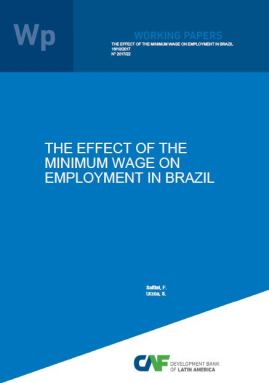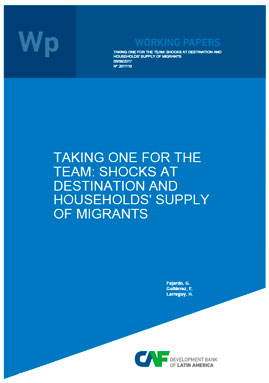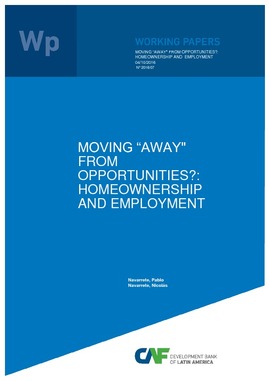The Effect of the Minimum Wage on Employment in Brazil
Abstract
During the economic boom of the early 2000s, most Latin American countries increased their minimum wages. In Brazil, the real minimum wage increased by upwards of 60 percent from 2003 through 2012. In this paper, we take advantage of administrative data to explore whether the minimum wage resulted in negative employment impacts in Brazil's formal sector. We explore different measures of the incidence of the minimum wage across states and examine various empirical specifications, yet find no significant disemployment impacts associated with this policy. On the other hand, we find significant negative impacts in microregions which were less exposed to the commodities boom. Since empirical strategies relying on incidence measures are inherently limited, we additionally exploit the introduction of a 2000 law which allowed states to implement regional wage floors. While these floors vary in scope and size, we find that the five states which implemented this policy included provisions directly targeting workers in the accommodation and restaurant sector. As a result, we adapt Dube, Lester and Reich's (2010) empirical strategy to Brazil and estimate the impact of these floors on employment in this sector by exploiting variation in microregions straddling state borders. As in our initial estimates, we find no significant negative employment impacts arising from the wage floors, indicating that during the early 2000s, the minimum wage did not result in negative employment impacts in Brazil's formal sector. Nonetheless, we caution that this result may not hold in a recessionary context, as shown in our commodity boom-incidence results.
Country / Region
Date
2017-10-16Cite this publication
Belongs to collection
Author
Saltiel, FernandoUrzúa, Sergio
Items Relacionados
Will you marry me, later? Age-of-marriage laws and child marriage in Mexico
We provide empirical evidence on the impact of raising the minimum age of marriage to 18 years old on child marriage, early motherhood, and school ...
Taking One for the Team: Shocks at Destination and Households' Supply of Migrants
We study how unemployment shocks in the United States affect Mexican households’ migration decisions. We emphasize households at origin (as op-posed to ...
Moving “away" from Opportunities?: Homeownership and Employment
Homeownership is promoted by the majority of OECD member countries. Nevertheless, the impact that owning a house can have on employment levels is not ...






